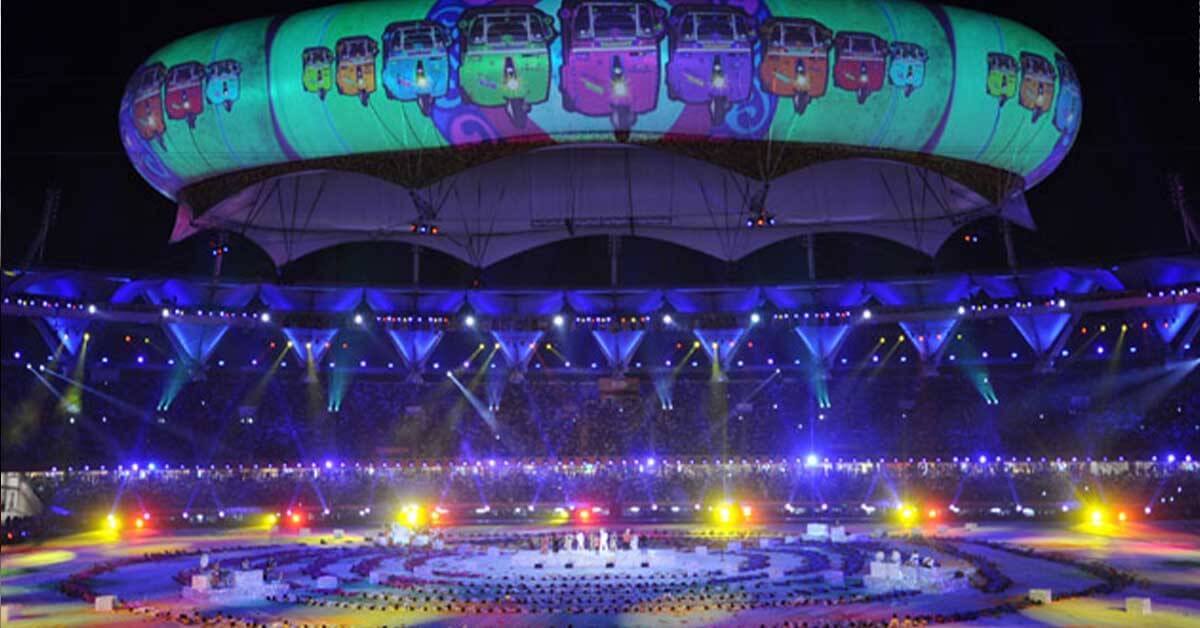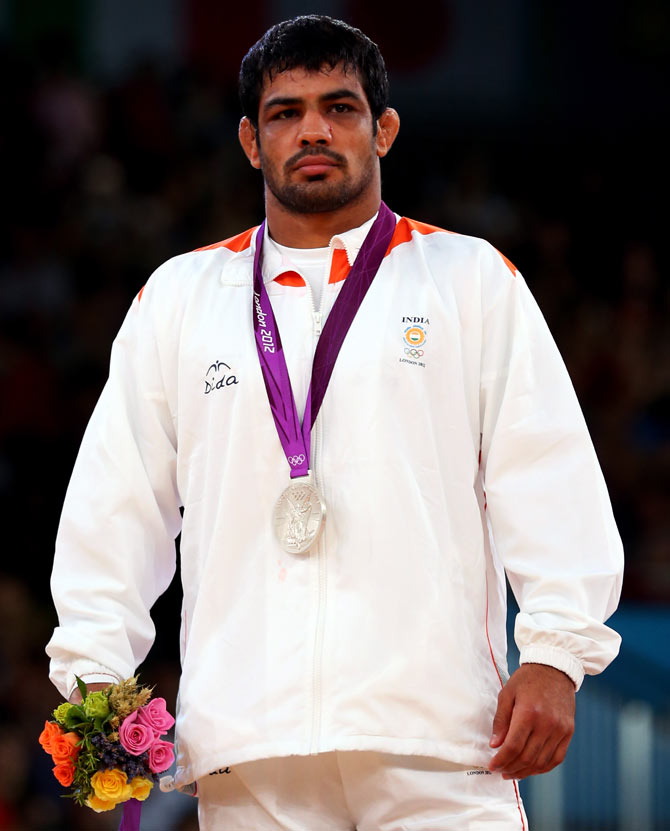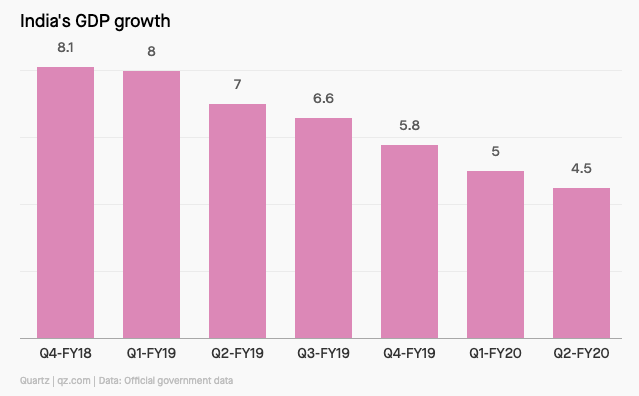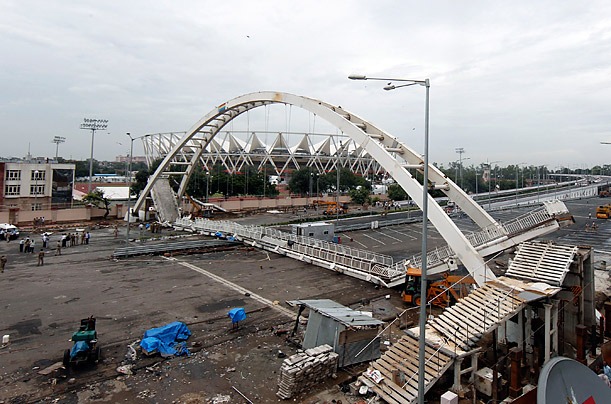Featured
Why India should not host the Olympics anytime soon?

The Olympics is an unmatched experience; an event like no other. As athletes from the world unite with an abounding sense of patriotism to see their long-held dreams bear results, it is the onus of the host city to meet their expectations and provide them with the very best. From nutrition to training facilities to ensure that they are accorded with a homely and lively stay, the country that has taken the role of ensuring that the Games are held successfully needs to ensure that every individual - player official or representative - heads back with a memorable experience.
As much as the grandest sporting spectacle on earth is about the tales and the fairy tales of its athletes, it is also about the grandeur that is able to be whipped up. Cities bid to host the Olympics not only to promote their image but also to facilitate economic growth and technological legacies, along with infrastructural progress and productivity. The London 2012 Olympics, for example, generated a surplus profit of $14 billion, while the 2000 Summer Sydney Games was yet another example of successful hosting as the event left a lasting impression for its meticulous planning and its seamless expertise.

The Australian city managed to increase its trade surplus from a $1.3 billion deficit to a $677 million surplus, with the world-class facilities that it created - right from the Olympic Stadium to the Aquatic Centre - still being considered as top grounds.
However, the International Olympic Association (IOC) has struggled to find candidates off late to host the Games. Only two cities were left by the end of the bidding process for the 2024 Games (Paris and Los Angeles). While 12 cities bid for the 2004 Games, only five bid for the 2020 Games. Only China and Kazakhstan showed their interest in the 2022 Winter Games, and the trend is hard to ignore. There are hardly any takers for the Olympics.
But why? If the event helps put the country on the global map, enabling them to showcase how efficient they are - oh, and not to forget the tourists they will attract during the Games - why are countries shying away? If countries are shying away, should India - who are eager to host the 2032 Olympics - hold back as well?
Read more: Study says India will win 12 medals in Tokyo 2020 Olympics
Can India afford to spend billions currently?
While the sociological impacts of hosting an Olympic event are tremendous, the primary reason why countries are backing away is due to the financial strain that it puts the country under. Bidding for the 2020 Olympics alone cost Tokyo $75 million in fees, with the hosting cost is over $26 billion - more than the $7.3 billion that was originally set aside for the Games. London paid around $16.6 billion for the 2012 event, while Beijing spent a mammoth $42 billion to host the 2008 Olympics.
Athens, that hosted the 2004 Games, shelled out $15 billion with Sydney spending $4.6 billion, with the taxpayers covering over $11.4 million. Not only are they huge numbers, but the returns that the cities get are also next to nothing as well. Beijing, for example, could generate just $3.6 billion in profits, with 5 million Beijing residents getting evicted from their houses to create stadiums another side-effect of it.
In the 1976 Montreal Olympics, a shortfall of $1.2 billion was estimated, which severely crippled the city’s financial status. It was only in 2006 that Montreal finished off paying all its debts - almost 30 years after it hosted the Games. Athens hit a massive recession in 2014, with many experts blaming 2004 as the starting point of the decline.
In most cases, the infrastructure and stadiums that have been built for the Olympics are not used as planned. The Bird’s Nest Arena in Beijing costs around $30 million for maintenance annually, and most facilities in Athens are empty, unable to cover the costs that it took to build them.
To host the Olympics, a city needs to have the infrastructure for 25-plus sports and 310 events, besides providing accommodation to at least 20,000 personnel including IOC members, government heads and ambassadors. Around 5 lakh tourists visited Rio de Janeiro in 2016 - which leads to additional preparations. Further, certain sports like rowing have their own requirements - which, when, combined, leads to great stress on a city’s resources.

Which brings us to why India should not host the Games at least in the near future. According to reports in Quartz India, the country’s GDP growth slump fell to a shocking 4.5% in the July-September 2019 quarter - the sixth successive fall in the quarterly GDP growth, and also the first time that India’s economy fell below the 5% mark. The unemployment rate is at 7.7% - a four-decade high that has been attributed to the 2016 demonetization.
Read more: Prediction for India’s medal tally at Tokyo 2020 Olympics
Salt Lake City that hosted the Winter Games in 2002 added just 7,000 new jobs, with most construction work going to already-employed workers. The profits from construction and hotels too mostly go to international companies rather than boosting the host city’s economy, and, thus, the view that hosting an Olympics might aid India in employment might not entirely be true.
With India’s fiscal deficit in 2019 till October standing at INR 7.2 trillion, should the government not focus on correcting the internal haphazard rather than bringing in a money-sucking event that might throw India further into gloom? Also, with either Delhi or Mumbai expected to host the Games IF it comes to India, how will the populous cities accommodate the individuals (tourists and athletes) all vying for the limited resources?
And, most importantly, what about the traffic?
The scam of the 2010 CWG is still fresh
Up until now, India has only hosted a handful of multi-sports events - the Asian Games in 1951 and 1982 and the Commonwealth Games in 2010 in New Delhi, and we all know how the last one turned out. With serious corruption and delays in finishing off construction work in the venues along with compromising on the quality of the infrastructure, the mishandling of the CWG led to massive international media coverage.
Economists slammed India for hosting the event, with Miloon Kothari, a leading expert in socio-economic development, stating that the Games created a negative financial legacy for a country. “When one in three Indians lives below the poverty line and 40% of the hungry live in India, when 46% of India's children and 55% of women are malnourished, does spending billions of dollars on a 12-day sports event build national pride or is it a matter of national shame?”

Nearly 400,000 people from slums were arrested in Delhi with a no-tolerance zone for beggars being enforced in the lead-up to the Games. As per reports, there were irregularities in 14 CWG projects with poor quality assurance and awarding work contracts at higher prices being rampant. A filtration system broke down during the swimming finals, which led to the pool being murky for the competition. The Games saw extremely poor ticket sales, with many venues going empty. A hockey match that could house 19,000 spectators saw just 100 people attend the game, with only 58 fans watching the netball opening encounter. African athletes alleged racist comments and the Athletes Village was not up to the mark either.
We could go on and on, but these should give a hint.
In a nation where corruption is rampant, the very thought of the irregularities that will be committed while hosting the Olympics is a severe fear. Not to forget the embarrassment that it will cause.
Read more: Tokyo 2020: How to book tickets for the Olympics
India’s own performance in the Games
Since the inception of the Olympics, India has managed to return with just 28 medals - with the highest tally being recorded at the 2012 London Games, where, incidentally the country did not win any gold. To an outsider, this just gives an impression that India does not take sports seriously, with no long-term plans set in place to mould the country into a sporting powerhouse. On the other hand, China, who will host the 2022 Winter Games, have been creating the right atmosphere for their athletes for the last decade so that they can reach the top level in front of a local audience.

Brazil finished with 19 medals in 2016. Hosts London bagged the third position in 2012. China bagged 51 gold and 100 medals in 2008 to finish on top, while Australia finished fourth in 2000. Sans Greece in 2004, all host nations have finished in the top-15 since the start of the century, and unless India can return with a historical haul - and I don’t just mean their best haul - the Games will hardly have any benefit, even if the financial constraints are overlooked.
The call of the hour, thus, is to encourage, train and systematically scout talent without political bias or corruption, which will help create world-class facilities in India. Creating top infrastructure to hone athletes and then bidding for the Olympics should be the way forward rather than bidding for it first and then preparing the sportsmen to make a mark.
The journey is a long one.

